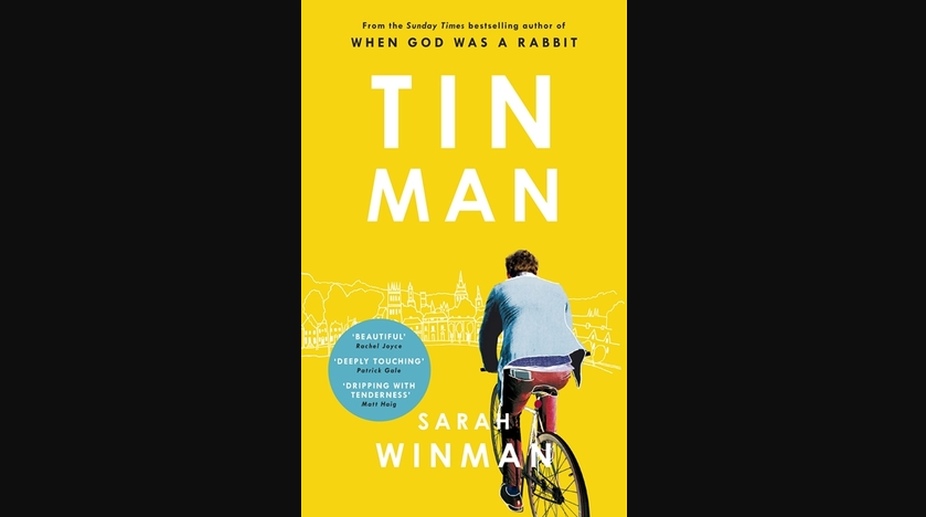A chronicle of deportation and incarceration
The reviewer is an associate professor of English, Tarakeswar Degree College, University of Burdwan.

Book: Tinman
Author: Sarah Winman
Publisher: Hachette India
Advertisement
Price: Rs 399
Pages: 197
Some novels have simple beginnings but they go a far longer way in constructing the narrative of the story than most unusual beginnings of suspense and mystery do. This, the third novel by internationally bestselling author Sarah Winman, is one such.
Setting the records straight is Winman’s forte and just like her immensely popular “When God Was A Rabbit,” she sort of summarises the entire theme of “Tinman,” her latest, in the very prologue of the novel.
Opening in 1950, the novel begins with the following line: “All Dora Judd ever told anyone about that night three weeks before Christmas was that she won the painting in a raffle.” But it was not just a painting that she won in that raffle; she found the courage to stand by what she believed and make a choice for herself.
Dora defied her husband after winning the raffle in the local community centre by choosing a reproduction of Van Gogh’s famous “Sunflowers, painting” instead of the whisky that her husband desired. “It was her first ever act of defiance. Like cutting off an ear. And she’d made it in public.”
And when “the door exploded,” her husband Leonard Judd made a lunge for the painting; Dora resisted again.
“Do it and I will kill you. If not now, then when you sleep. This painting is me. You don’t touch it, you respect it. Tonight, I will move into the spare room. And tomorrow you will buy yourself another hammer,” she said.
It is a novel of two halves, told in two different perspectives. The first is about 46-year-old Ellis, who works nights in the paint shop of an Oxford car plant, smoothing out dents so that no imperfection will ever be detected. Initially, he had wanted to be an artist but after the death of his mother in his teens, his father forbade him from following his passion.
Now in his mid-forties Ellis is a lonely man and loneliness is what he sees in things and people around him. “This had always been the worst time when the quiet emptiness could leave him gasping for breath. She was there, his wife, a peripheral shadow moving across a doorway, or in the reflection of a window, and he had to stop looking for her,” Winman writes about the middle-aged widower.
Memory plays a very crucial role in this novel and Ellis’s childhood friendships and his love affair with best friend, Michael, rules the roost in the first half of the novel. Later, Ellis meets his future wife Annie and the three (Ellis-Michael-Annie) become close friends. This friendship, as well as the first part of the novel, ends suddenly when Michael moves to London after his grandmother’s death.
Michael’s perspective comes to light in the second half of the novel and fills the gap about his life in London and his lasting friendship with Ellis. He fondly remembers a trip of nine days to France where there was nothing between him and Ellis — they were lovers.
“We undressed separately, unbearably shy. I don’t know what to do, he said. Me neither, I said. I lay down and opened my legs. I pulled him on top of me and told him he had to go slow”.
When Ellis and Michael were boys, they were inseparable. But the boys became men, and then Annie walked into their lives and it changed everything. There is no great story in “Tinman,” rather it is some sort of a reflection about alternative lives that people may have lived, if the circumstances were different. The plot is extremely simple and carefully divided. As the past slides in to colour the present, the entire lives of the characters are laid bare even though there is no real action taking place in the present moment.
Dora Judd’s defiance of her husband after winning the raffle at the beginning of the novel is nothing but a contemplation of alternative lives; the lives of Ellis and Michael being shattered by Annie’s entry is similar too.
The author, Sarah Winman, has a distinctive style. She uses direct speech without punctuation so that the reader hears it naturally at the same time as the characters. The appeal of her writing is so strong to the senses that it is almost visual and auditory. And the best part, this 197-page long novel is a perfect page turner to be read in one sitting.
Advertisement